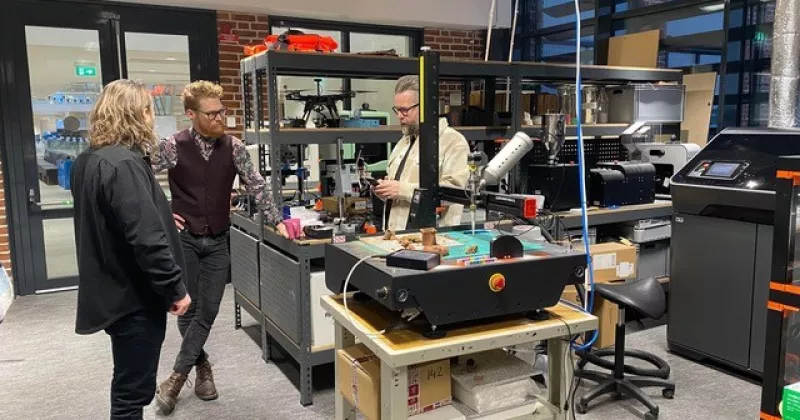Trish Murphy, a Community Story from Ireland

My name is Trish Murphy and I have over 20 years’ experience as an adult learning tutor in DALC (Dublin Adult Learning Centre). I work as a Healthcare support tutor for students completing their QQI certificate in Level 5 which qualifies them to be healthcare workers in family homes, nursing homes, care homes and hospitals. At the moment I am supporting about 12 students at different stages of their studies. I work with groups and with students on their own giving support as they need it.
How has Covid 19 affected my professional life? Firstly, the place of learning has closed and delivery of classes is happening in other ways. I am currently supporting my healthcare students in a numbers of ways – by telephone, by email, by post, on platforms such as Zoom and WhatsApp. I also make sure people have a hard copy of work before classes so I have also posted some work if people can’t get it by email. I have also asked students to take a photo of their assignments as a backup if they are sending it back in the post.
Once or twice I have met students outside for a socially distant walk to chat face to face to talk about their assignments and the work they are doing!
Many of my students that are working on the front line are anxious to complete their course for employers as they often ask for certification, especially in these demanding times when healthcare workers are needed more than ever. One of my students who recently qualified contacted me asking for a copy of all his certificates for his employers. The good news is that QQI (the examining body in Ireland) has made allowances in some cases. I have students on work experience and sometimes it can be difficult to finish the work placements required for the course. Students can use other work they have done in the past to account for the numbers of hours required. At the moment, they need to do 60 hours work but QQI will accept half of that or a combination of other work done in another centre/place. Some allowances are also being made in how work is being recorded for certification purposes. On one part of the course, they need to do a skills demonstration to show they can understand and complete some of the practical aspects of working in healthcare – like making a bed, feeding someone, giving a bed bath. Some students can now record the demo at home with a family member or whoever is living with them and send it in. In the past, the demo was usually done in the learning centre. I think nowadays, the method of capturing the learning needs to be more flexible in its approach. I do think at times when you are supporting students remotely, it is more difficult to have boundaries. I could get emails and texts at all hours. However, I try and maintain professional boundaries. I always reply to acknowledge that I have received a piece of work, but I say that I will respond with feedback as soon as I can - possibly the next working day.
I think we are finding creative ways to do and record skills demonstrations as outlined above, like using a wheelchair, doing proper procedures for hand washing etc. These things can be acted out at home with a family member and videoed and submitted.
Recently, I had a group meeting/class using Zoom. I was expecting 8 but only 5 logged on. As a tutor, I am just getting used to the technology and video classes myself! For my very first one, I had set up two meetings and logged on to one, whereas everyone was at the other ‘meeting’. My students were very understanding of the delay - we eventually all got online together - as I think they realised it is a learning curve for us all. We have to teach ourselves and be one step ahead. To access Zoom etc I have encouraged students to get someone in the family to help, say a daughter or a grandchild, if I find that the students are challenged with technology use. I think even us as a staff, you can see when people are struggling, and we are all learning new technologies since lockdown.
My learners are responding very well and creatively to this new way of doing things!
I think there are several reasons but mainly that our students are at a slightly higher level than some of the more basic literacy students in our centre. They are anxious to get in and continue their accreditation, probably as there is a clear purpose for them – they want to get their qualification for work so I would say motivation is very high. I think the other reason is that we have had no new students. I am working with existing students. It is much easier to contact them and work with them because we have a proper relationship, a good rapport. They are students I know already. I think it would be incredibly challenging to start with a completely new student over Zoom or over the phone. Student level and relationship with a tutor means remote learning is more successful rather than if a student was a new student and very basic.
How is distance learning different to classroom-style learning? The first difference is that you need to be more organised, you need to be flexible when people are working from home if they have family and other commitments. We had one Zoom class recently and one student didn’t have her camera on. I always give people the choice – it could be a confidence issue or simply that they didn’t like to have their house on camera. There is also a difference in terms of learning goals. I would use Zoom for group learning and classes, whereas I tend to use the phone if I have something specific to say to a student or if they need help with something. I think you can be more student led; more student centred over the phone as you can guide them in what they are doing. Zoom is more about the group and what you might do in the classroom. However, we have cut the class down to 40 mins as there is a danger with Zoom that you can go over the allotted time. I think something like shorter classes twice a week would work better over video classes.
I also think it can be a more tiring way of interacting because you can’t see the body language and you don’t have a sense of how the student is feeling.
I know of one recent class; one student was noticeably quiet throughout the class and that is hard as I am not sure what she was learning or taking in. I don’t use Zoom for the sake of it. I would rather make a phone call, especially if I wanted to check in or if a student needed help with an essay. Another thing with technology is that I don’t like putting people to expense. I have a phone package for unlimited calls so I usually say that I will ring them. I don’t think we can assume students have access to phones and laptops and computers, or a Wi-Fi package - so that we need to check in that they do. I think that this experience will change the provision of adult learning because we might even do more classes again online, especially for those who are missing sessions. I do think there are many positives with remote classes especially for those who may not be able to make the class due to work or family commitments for anyone who has a long commute to the centre. I do think we may have to do some more remote learning even when things are back to normal.
We're looking forward to hearing your story. Share your story today!





